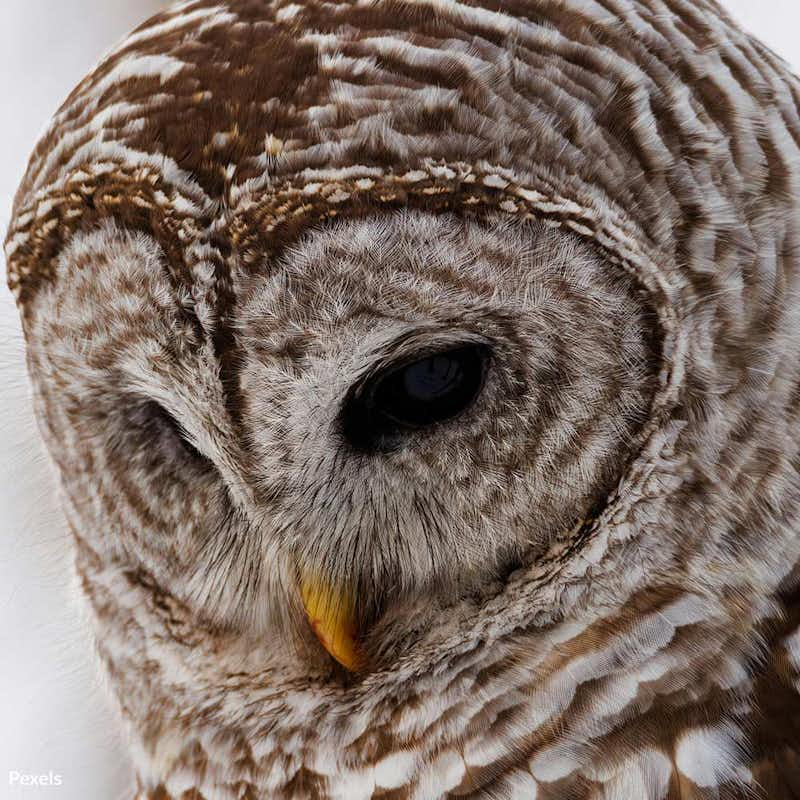Stop the Barred Owl Slaughter
2,822 signatures toward our 30,000 Goal
Sponsor: The Animal Rescue Site
Tell the USFWS to halt a plan that threatens to disrupt nature's delicate balance by culling over 400,000 barred owls.

The survival of the spotted owl, a symbol of America's forest biodiversity, hangs in a precarious balance.
This iconic bird, once thriving in the dense canopies of the Pacific Northwest, now faces the brink of extinction.
The emerging threat? Not habitat loss or climate change, but a controversial plan proposed by the U.S. Fish and Wildlife Service aimed at saving the spotted owl by eliminating over 400,000 barred owls1.
The Controversial Plan
Barred owls, larger and more assertive, have ventured into spotted owl territories, outcompeting them for food and space2. The government's plan to cull these barred owls has ignited a fierce debate, pitting the ethics of conservation against the harsh realities of ecological intervention.
Ethical and Ecological Concerns
The heart of this issue lies not just in the struggle for survival between two owl species, but in our responsibility towards the natural world. The proposed mass culling of barred owls raises profound ethical questions and potential ecological consequences that cannot be ignored3.
Seeking Humane Alternatives
While we recognize the urgency to act for the spotted owl's preservation, we advocate for alternatives that do not involve large-scale killing. Innovations in conservation, habitat restoration, and non-lethal control measures offer paths that respect the balance of ecosystems and the sanctity of all life4.
The Call to Action
The plight of the spotted owl reminds us of the delicate interconnections within nature. Every action we take ripples through the ecosystem, affecting countless lives and future generations. It's a call to approach conservation with humility, wisdom, and compassion.
Your voice matters in this critical moment. By signing our petition, you stand for humane and sustainable solutions that ensure the survival of the spotted owl, without sacrificing the barred owls. Together, we can advocate for approaches that foster coexistence and respect for all species, paving the way for a brighter, more balanced future.
Take action now. Sign the petition. Stand for a future where all life is valued and preserved.
- Trevor Hughes, USA Today (26 December 2023), "Feds want to hunt one kind of owl to save another kind of owl. Here's why.."
- Justin Boggs, KSBY (8 December 2023), "US considers program to hunt owls to protect other owls."
- Nikki Main, Daily Mail (28 March 2024), "US government plans to unleash 'hunters' to KILL half a million owls in three US states to save its endangered cousin."
- Sage Van Wing, OPB (30 November 2023), "USFWS proposes shooting barred owls to save spotted owls."
The Petition:
To the Director of the U.S. Fish and Wildlife Service,
We, the undersigned, voice our strong opposition to the proposed plan of culling over 400,000 barred owls in an effort to protect the endangered spotted owl population. This drastic measure not only raises significant ethical concerns but also poses potential risks to the ecological balance within our natural habitats.
The barred owl, though invasive, has become part of the ecosystem's current dynamics. The mass removal of such a large number of these creatures could lead to unforeseen and possibly irreversible consequences, affecting other species and the overall health of our forests.
We acknowledge the critical situation of the spotted owl and the necessity for intervention to prevent its extinction. However, we urge the consideration of more humane and ecologically responsible alternatives. These could include habitat restoration and protection, research into non-lethal population control methods, and the exploration of innovative conservation strategies that do not involve the large-scale killing of wildlife.
Conservation efforts should aim to preserve the intricate balance of nature, respecting the intrinsic value of all species. The focus must be on creating and maintaining ecosystems where diverse species, including the spotted and barred owls, can coexist.
By adopting more compassionate and sustainable approaches to wildlife management, we can ensure a brighter future for all species, maintaining the biodiversity that is essential for the health of our planet and the well-being of future generations.
Sincerely,
 Welcome Back! Log In to Continue
Welcome Back! Log In to Continue